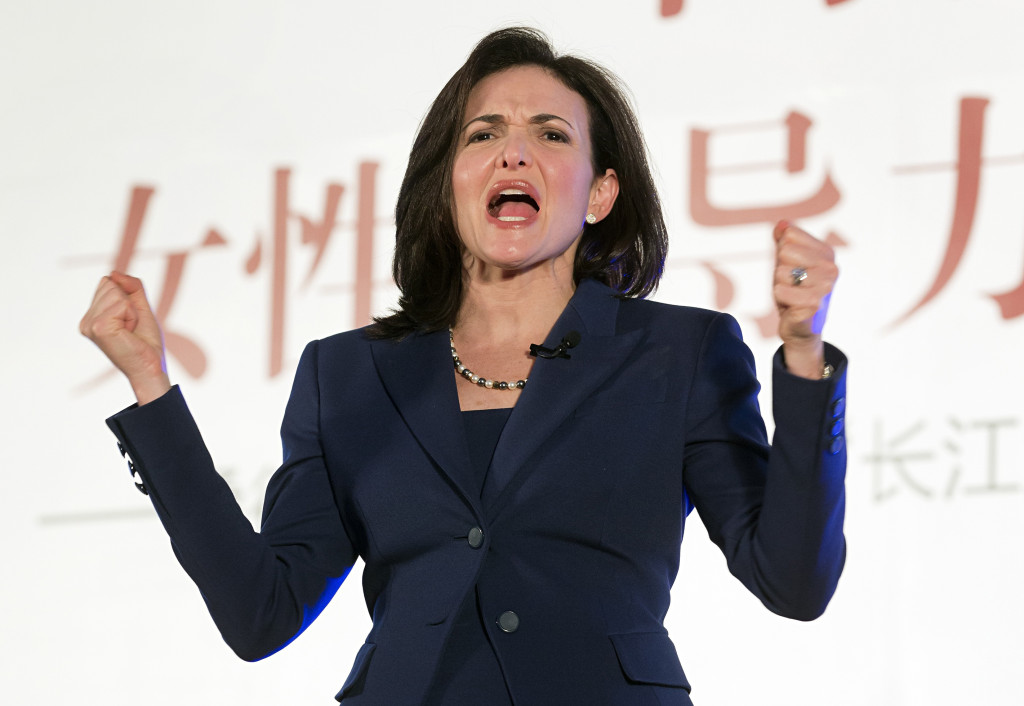#BanBossy promotes leadership and equality amongst young girls
By Julia Siedlanowska, Staff Writer
Sheryl Sandberg’s latest campaign “Ban Bossy”—supported by the likes of Beyoncé, Jennifer Garner, Condoleezza Rice, and Jane Lynch—aims to abolish the negative connotations of the word “bossy,” and encourage leadership in girls. To me, this really stinks of self-promotion.
I’m the first person to champion leadership and equal rights among women, but there’s a distinction between the words “bossy” and “leader” that I can’t get over, and I’m not about to jump on just any trend.
Granted, if a young girl is being called “bossy” for asserting herself, or is reluctant to speak up or raise her hand in class for fear of being ostracized, there is a problem. However, there are also times when being bossy is a form of bullying. While teaching children to assert themselves and gain confidence as leaders, we must also be careful in how we teach them to do it.
Sandberg is the current COO of Facebook and former Vice President of Global Online Sales and Operations at Google. She co-authored her first book Lean In: Women, Work, and the Will to Lead, which was published last year. Her resumé is impressive, and reading about her accomplishments is inspiring. She sets a good example as a successful female role model in the corporate world, just as the “Ban Bossy” movement attempts to do.
Different messages reach different people in different ways. To some, reclaiming the word bossy might be as natural as the shift of “sick” being something positive, but to me, a bossy leader is not someone I would like to follow.
“Ban Bossy” is just a catchy slogan for a fantastic cause, but the negative connotations of the word are turning some people off. Although the entire campaign has positive messages for girls, the word itself sounds aggressive. While PDF brochures on banbossy.com give advice to girls, such as taking on challenges, talking to people instead of about them, or my favourite tip: trusting your inner voice. The use of the word bossy sends a mixed message.
The website also offers eye-opening facts: “By middle school, girls are 25 per cent less likely than boys to say they like taking the lead,” because “[g]irls are twice as likely as boys to worry that leadership roles will make them seem ‘bossy.’” This is probably part of a larger issue having to do with self-esteem in girls versus boys. Tackling the “bossy” issue might just be a good place to start.
While I think it’s important to distinguish the difference between positive leadership and meanness, there are many girls who might benefit from the use of a more aggressive vocabulary. Part of the campaign’s argument is that girls are taught to be nice and well-behaved; this often leads to insecurity about being called out for bossiness or aggression. Ban Bossy points out the different ways girls dilute their assertiveness, such as by phrasing things as a question rather than an answer, or adding a buffer such as “I’m not sure if this is right, but…” I think the general trend is that girls need to be more assertive, whether you call it bossy or not.
While I do think this campaign is largely Sandberg and her buddies promoting themselves, I can fully get behind the message. Leaders in the community such as teachers, parents, and grandparents need to make sure they are giving equal attention, focus, opportunity, and encouragement to girls and boys.
Ban Bossy gives good and simple tips on how to do this, including suggestions for activities (such as a Bechdel test-oriented movie night) that promote awareness and understanding about gender imbalance. As someone who works with youth in the community, I must admit that Ban Bossy has brought a certain amount of awareness to me, and I will observe more acutely how I treat girls and boys. If I’m ever leading a shy girl, I’ll probably introduce her to Ban Bossy, regardless of the connotations.



